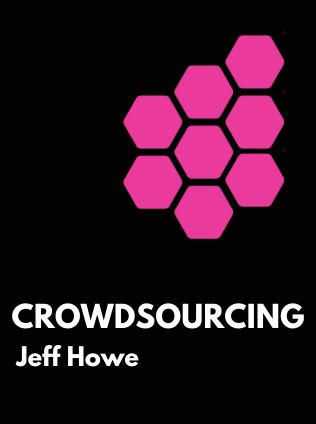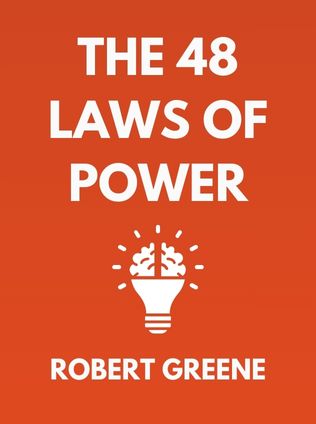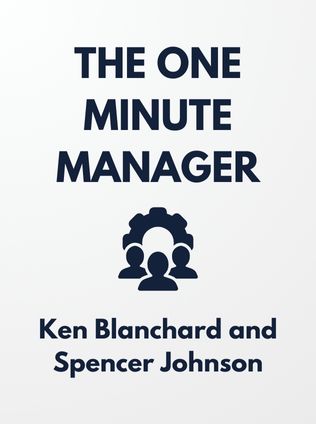
Crowdsourcing
Why the Power of the Crowd is Driving the Future of Business
By Jeff Howe
Published 12/2007
About the Author
Jeff Howe is a seasoned journalist and author, best known for coining the term "crowdsourcing." He has written extensively about the intersection of technology, business, and culture. Howe has contributed to various prestigious publications, including Wired Magazine, and is a sought-after speaker on the topics of innovation and the future of work. His book, Crowdsourcing, explores how the collective power of the crowd can be harnessed to solve problems, drive innovation, and create value in ways that were previously unimaginable.
Main Idea
The central thesis of Jeff Howe's Crowdsourcing is that by leveraging the power of the crowd, organizations can accomplish tasks that were once the sole domain of a specialized few. Crowdsourcing enables the harnessing of dispersed knowledge and talent, thus democratizing the ability to innovate and solve complex problems. This book delves into the mechanisms, benefits, and future potential of crowdsourcing, providing a comprehensive guide on how to effectively utilize this powerful tool in various business contexts.
Table of Contents
- The Concept of Crowdsourcing
- Historical Context
- Current Applications
- Future Implications
- Strategies for Effective Crowdsourcing
The Concept of Crowdsourcing
Crowdsourcing is the practice of outsourcing tasks traditionally performed by specific individuals to a large group of people or a community (the crowd) through an open call. This method taps into the collective intelligence and creativity of a diverse group, leveraging their skills, knowledge, and perspectives to achieve superior results.
"Crowdsourcing allows the power of the crowd to accomplish tasks that were once the province of just a specialized few. Or to put it another way, crowdsourcing is to take the principles which have worked for open source software projects and apply them across the entire spectrum of the business world." - Jeff Howe
The essence of crowdsourcing lies in its ability to democratize problem-solving and innovation. By engaging a diverse group of individuals, crowdsourcing can generate a wide array of solutions that might not be conceived by a homogenous team. This diversity is crucial because it brings different perspectives, experiences, and expertise to the table, enhancing creativity and problem-solving capabilities.
Crowdsourcing leverages modern communication technologies, particularly the internet, to reach and mobilize a vast number of people. This accessibility allows organizations to tap into a global pool of talent, making it possible to find the best solutions regardless of geographical constraints.
- iStockphoto revolutionized the stock photo industry by allowing amateur photographers to sell their photos online. This crowdsourcing model provided a platform for photographers to showcase their work and earn money, while customers benefited from a wide selection of affordable images.
- InnoCentive connects companies with a network of over 140,000 scientists to solve complex scientific problems. By posting challenges online and offering financial rewards, InnoCentive harnesses the collective expertise of a global scientific community to find innovative solutions.
- Wikipedia is a prime example of crowdsourcing, where volunteers from around the world contribute to and edit articles to create a comprehensive and up-to-date encyclopedia. This model relies on the collective knowledge and dedication of its users to maintain and expand its content.
- Identify tasks or problems that could benefit from diverse perspectives and expertise.
- Create an open call for contributions, clearly outlining the task, criteria, and rewards.
- Utilize online platforms and social media to reach a broad and diverse audience.
- Implement mechanisms for evaluating and integrating contributions effectively.
- Provide recognition and incentives to motivate and reward contributors.
Historical Context
Crowdsourcing is not a new concept; it has roots in various historical practices where collective effort and knowledge were utilized to solve problems and create value. However, the digital age has significantly amplified its potential and applications.
The concept of crowdsourcing can be traced back to practices such as open innovation contests, public competitions, and collective problem-solving efforts. For example, the Longitude Prize of 1714 was an early form of crowdsourcing, where the British government offered a reward for a solution to determine a ship's longitude at sea. This prize attracted numerous entries and ultimately led to significant advancements in navigation.
In the modern era, the rise of the internet and digital communication tools has made it easier to organize and mobilize large groups of people. Platforms like Kickstarter, Wikipedia, and various open-source software projects have demonstrated the power of collective effort in achieving goals that would be challenging for individuals or small teams.
Sign up for FREE and get access to 1,400+ books summaries.
You May Also Like
The Lean Startup
How Today's Entrepreneurs Use Continuous Innovation to Create Radically Successful Businesses
By Eric RiesWho Moved My Cheese?
An Amazing Way to Deal with Change in Your Work and in Your Life
By Spencer Johnson, M.D.Make Your Bed
Little Things That Can Change Your Life...And Maybe the World
By William H. McRavenThe Ride of a Lifetime
Lessons Learned from 15 Years as CEO of the Walt Disney Company
By Robert Iger



















